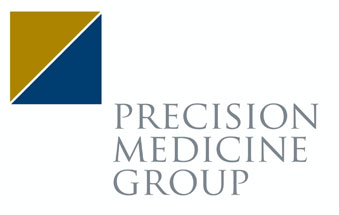Readthrough from GameStop?
Like many of you, we spent last week equal parts intrigued and perplexed by GameStop. While we weren’t betting on its performance ourselves, we were thinking about the readthrough for our own efforts, since we are all too familiar with the phenomenon of the short squeeze and the volatility that can be introduced through heavy retail engagement. And since it seems like some biotech companies may be the next targets of these Reddit traders (see more here). It should be noted that in addition to the purely alpha play, the Reddit traders seemed also to be focusing on a more political populist effort to demonstrate that small investors could perform better than hedge fund and other professional experts, and indeed control trading in specific stocks of interest.
First, on the short squeeze: IHS Markit published an analysis early last week, showing that the average performance across the Russell 3000 was correlated to short interest levels, as retail investors looked for the next short squeeze candidate and short sellers tried to get out of the way. Specifically, on the date IHS ran its analysis (1/25), stocks with the highest short interest materially outperformed the broader market: stocks with over 30% of their shares shorted were up 10%! Moreover, this impact wasn’t limited to just high short interest stocks: reports cited by IHS suggest that certain hedge funds hurting from this rally had to adjust positions in their long holdings as well, leading to widespread volatility across top hedge fund positions.
And looking ahead: just how much attention should IR teams be paying to retail investors and the sort of message boards that enabled the GameStop phenomenon? While we’re not ready to advocate active engagement on forums like Reddit – it can be very time consuming; it’s difficult to control the narrative and the environment; and it’s generally unlikely to meaningfully move the needle – it’s clear that individual investors are becoming a more and more dominant force. A report published by Goldman Sachs last week noted that single stock call option volumes are up more than 400% over the past three years, and total single stock options volumes are up more than 120% of daily total shares volumes, with much of this increase coinciding with the start of the pandemic.
To that end, we are starting to see more formal efforts within the IR community to build relationships with retail investors. For example, last year, Nasdaq published an educational hub for retail investors and two newer companies, Stockperks and TiiCKER, have emerged to increase retail engagement through perks. Going forward, we’ll be keeping a close eye on how this trends continues to evolve, with the goal of determining actionable, efficient and effective strategies for engagement. Please let us know if you’d like to discuss.
This Week in VC Funding…
This week, Abingworth announced its latest transatlantic venture fund, Abingworth Bioventures 8 (ABV8), which raised $465 million. ABV 8, Abingworth’s 13 life sciences fund, will target companies developing innovative therapeutics with the potential to significantly improve human health. The firm will invest broadly across multiple stages, including seed and early stage, development-stage companies, including VIPEs (venture investments in public equities), and clinical co-development opportunities. Total investment size per company will typically range from $15 million to $30 million.
Market Update: After another tumultuous week, the markets showed a slight rebound, with the NASDAQ, DJI and S&P 500 closing up 3%, 1% and 2% respectively. The VIX was down 28% sitting at 21.84 as of market close on 2/4. The biotech markets followed a similar trajectory, with the NBI, BTK and XBI closing up 4%, 7% and 2% respectively.
The financing markets continued to be hot, with many deals pricing, including some of the largest IPOs and follow-ons in biotech history!
- 11 IPOs: Angion ($80M); Stern IR client Bolt ($230M); Evaxion ($30M); Immunocore ($258M); Landos ($100M); Lucira ($153M); Pharvaris ($166M); Sana ($588M); Stern IR client Sensei ($133M); Tern ($128M); Vor ($177M).
- 12 follow-ons: Arcutis ($193M); Stern IR client argenx ($1B – one of the largest biotech follow-ons ever!); Stern IR client EyePoint ($100M); IsoRay ($45M); Iterum ($40M); Kaleido ($60M); Krystal ($125M); Moleculin ($68M); Pluristem ($30M); Revolution ($261M); Stern IR client Rhythm ($150M); Quanterix ($250M).
- 3 private financings: Coya (Series A, $10M); Encondia ($75M, Series C); Reverie Labs (Series A, $25M).

